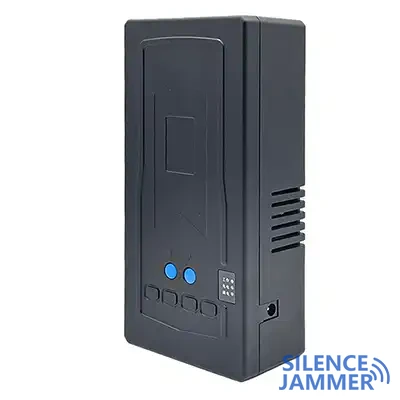BSRs, as a technical means of blocking wireless communications, have sparked widespread discussion in Brazil in recent years. cell phone jammer Although current laws only allow the use of such devices in prisons, the National Telecommunications signal jammerAgency (Anatel) is considering expanding their use to other government agencies. Neger Telecom, a major player in the field, has expressed strong opposition to this proposal. This article will explore in detail the evolution of BSR technology, the current legal controversy, and the possible impact of expanded use.GPS jammer
The evolution of signal jammers
Signal jammers were originally used mainly in the military field, and then gradually applied to prisons to prevent prisoners from contacting the outside world through their mobile phones, thereby preventing criminal activities.Wifi jammer Brazil first tested BSR in prisons in 2001, and then the technology was gradually promoted nationwide. Neger Telecom is an important company involved in the development of this technology, and its BSR equipment has become an important security tool in the prison system.
At the technical level, signal jammers interfere with communications by emitting radio waves at the same frequency as mobile phone signals. This device can prevent normal communication between mobile phones and base stations, thereby cutting off calls, text messages and data transmission. However, with the development of 5G networks and drone technology, BSR is also constantly upgrading. For example, Neger Telecom launched the first device capable of interfering with 5G signals in 2021, indicating that this field of technology is still evolving.
Legal and technical challenges of extended application
Currently, Anatel has proposed to expand the use of BSR to institutions such as the armed forces and the federal police to deal with a wider range of security threats. However, Neger Telecom explicitly opposes this proposal, arguing that current laws do not support such an expansion. According to Brazilian Law No. 10,792/2003, signal jammers can only be used in prisons, and any other use may involve violations of the law.
In addition, Neger Telecom also pointed out that the extended application of signal jamming technology may have a negative impact on civilian communication networks. For example, the widespread use of BSR may interfere with Wi-Fi networks, aviation communications, emergency service calls, and even affect the normal operation of drones. Eduardo Neger, director of operations at Neger Telecom, believes that the use of BSR should be limited to specific scenarios as much as possible, and technical means should be used to ensure that it does not interfere with normal communications in the surrounding area.
Dilemma of security applications
Despite technical and legal challenges, the expanded use of BSR has indeed demonstrated its security value in some special cases. During the 2016 Rio de Janeiro Olympics, the Brazilian government deployed signal jammers around the competition venues to prevent drones from interfering with the events. Similarly, in 2018 and 2019, the Brazilian armed forces also used BSRs to prevent drone attacks during the protection of President Bolsonaro’s parades.
These application scenarios show that BSR plays an important role in maintaining national security. However, as Neger Telecom emphasizes, the widespread use of BSR may have unforeseen consequences. For example, if BSR equipment is widely used in cities, it may interfere with nearby civilian networks and affect the normal operation of emergency services. This potential risk makes the expanded application of BSR a dilemma.










